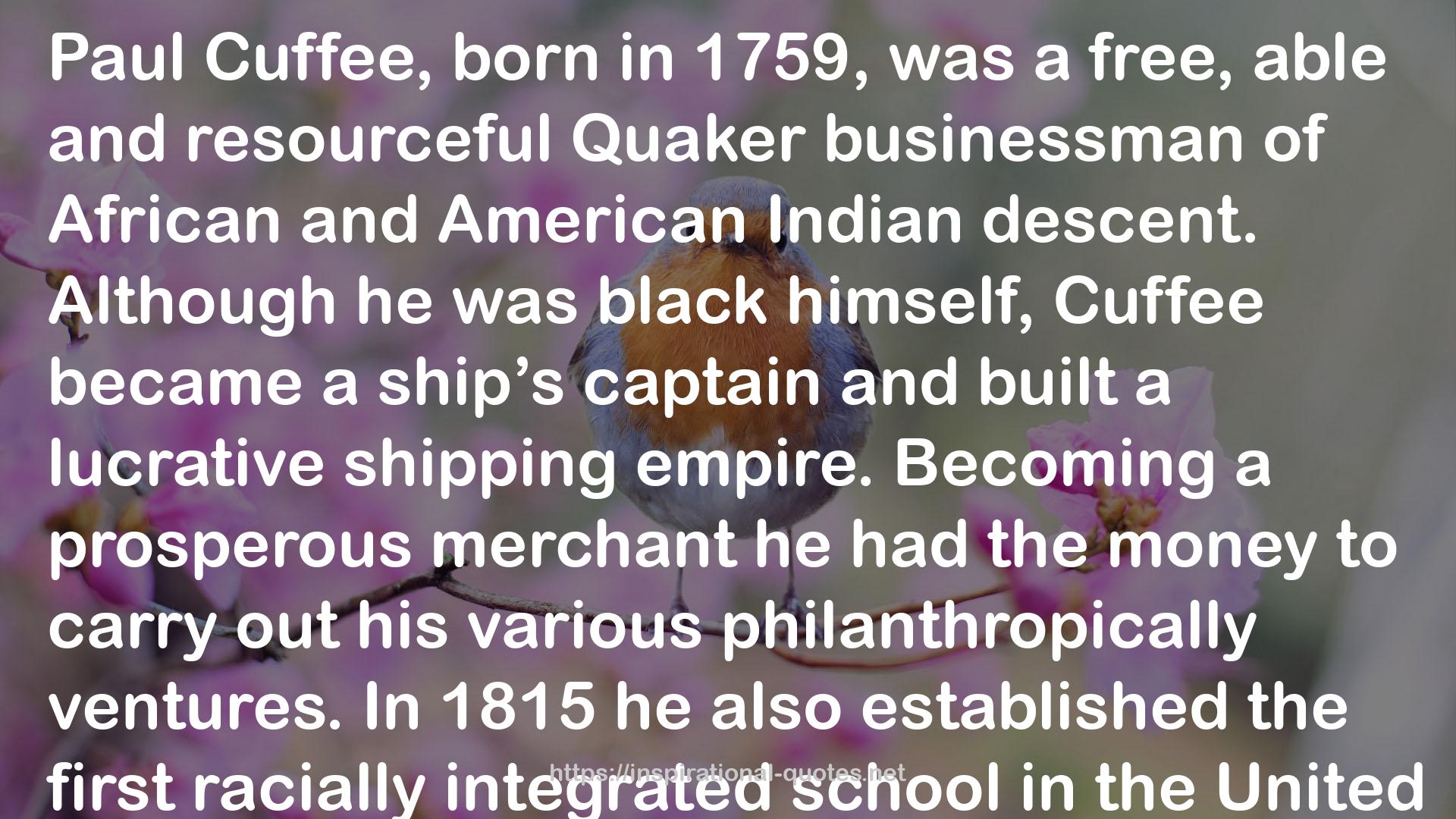" Paul Cuffee, born in 1759, was a free, able and resourceful Quaker businessman of African and American Indian descent. Although he was black himself, Cuffee became a ship’s captain and built a lucrative shipping empire. Becoming a prosperous merchant he had the money to carry out his various philanthropically ventures. In 1815 he also established the first racially integrated school in the United States, locating it in Westport, Massachusetts.
The following year he advocated settling freed American slaves back to the West Coast of Africa. At first he found little support from the young American government but being aware of a British colony founded in Freetown, Sierra Leone a British colony he looked for support for his venture from the British government. Although they didn’t support him financially, they did allow him to bring in the freed former slaves. As he became better known as a crusader for this purpose, free black leaders and some members of United States Congress joined him and embraced his plan to take emigrants to Sierra Leone. At the start Cuffee intended to make only one voyage per year, taking settlers and off set his expenses by bringing back nonperishable valuable cargoes such as hand crafted items and furniture quality hard woods.
In 1816, at his own expense, Captain Cuffee took thirty-eight American freed blacks, from Boston to Sierra Leone, which was still the only colony that existed for this purpose in West Africa. "
― Hank Bracker
Image for Quotes

